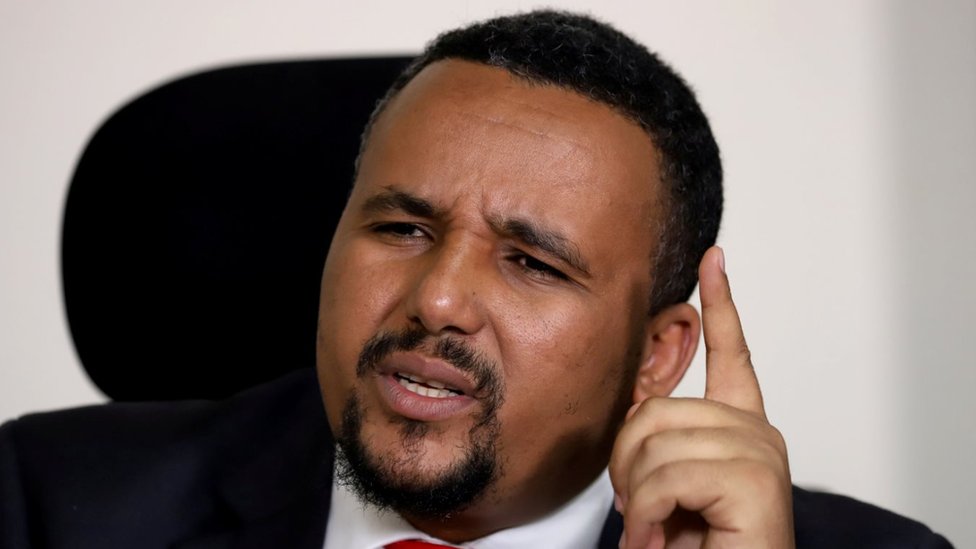
Prominent opposition figures are among 24 people charged with terrorism in Ethiopia.
The charges were laid in connection with a wave of ethnic unrest which followed the killing of popular Oromo singer Hachalu Hundessa, leaving more than 150 people dead in late June.
The country's attorney general said the group would appear in court on Monday.
Critics have accused Prime Minister Abiy Ahmed of locking up those who oppose his government.
Jawar Mohammed - a media mogul turned opposition politician with a huge following among young people in Oromo - was among those charged. He was arrested in July as security forces cracked down. His lawyer dismissed the charges announced on Saturday as baseless.
- Ethiopia's murdered musician who sang for freedom
- The jailed media mogul taking on Ethiopia's leader
A former ally of Mr Abiy, Mr Jawar has criticised the Nobel Prize winner for not having done enough to address the long-felt grievances of the Oromo people, the group which they both belong to.
In an opinion piece in this week's Economist, Mr Abiy said people opposed to his reforms were harvesting the seeds of inter-ethnic and inter-religious division and hatred.
A number of other critics, some of whom are not in the country, were also named as being among the group of suspects.
According to a statement posted by the attorney general on social media, they have also been charged under telecom fraud and firearms laws.
Rights groups have criticised the fact that it has taken weeks for any charges to be brought against them.
At least 166 people died in the days which followed the killing of Hachalu, 34, back in June.
The father-of-two was seen as a hero in Oromia. His songs focused on the rights of the country's Oromo people, Ethiopia's largest ethnic group, and became anthems in a wave of protests that led to the downfall of the previous prime minister in 2018.
The motive remains unclear. Hachalu had said he had received death threats.
tinyurlis.gdu.nuclck.ruulvis.netshrtco.de
مقالات مشابه
- Coronavirus: چرا گجرات به هند بالاترین نرخ مرگ و میر
- هر آنچه که باید برای تحلیل بازار ارز دیجیتال بدانید
- مهره مار - نامـوس کفتـار - مهره گبری
- Coronavirus: 'ماسک شما دور می تواند در نهایت کشتن یک نهنگ'
- نکاتی برای ویرایش عکس های عالی در آتلیه عکاسی کودکان
- می تواند کامپیوتر شما لطفا بیشتر مودب? با تشکر از شما
- گوگل در $5bn طرح دعوی در دادگاه برای ردیابی در 'خصوصی' حالت
- تجهیزات و علوم آزمایشگاهی - تجهیزات و علوم آزمایشگاهی
- اثرات مصرف کردن مواد شیمیایی در لوله بازکنی در غرب تهران بر روی سلامت ویژه کارگران
- شرکت صادرات و واردات کالاهای مختلف از جمله کاشی و سرامیک و ارائه دهنده خدمات ترانزیت و بارگیری دریایی و ریلی و ترخیص کالا برای کشورهای مختلف از جمله روسیه و کشورهای حوزه cis و سایر نقاط جهان - بازرگانی علی قانعی